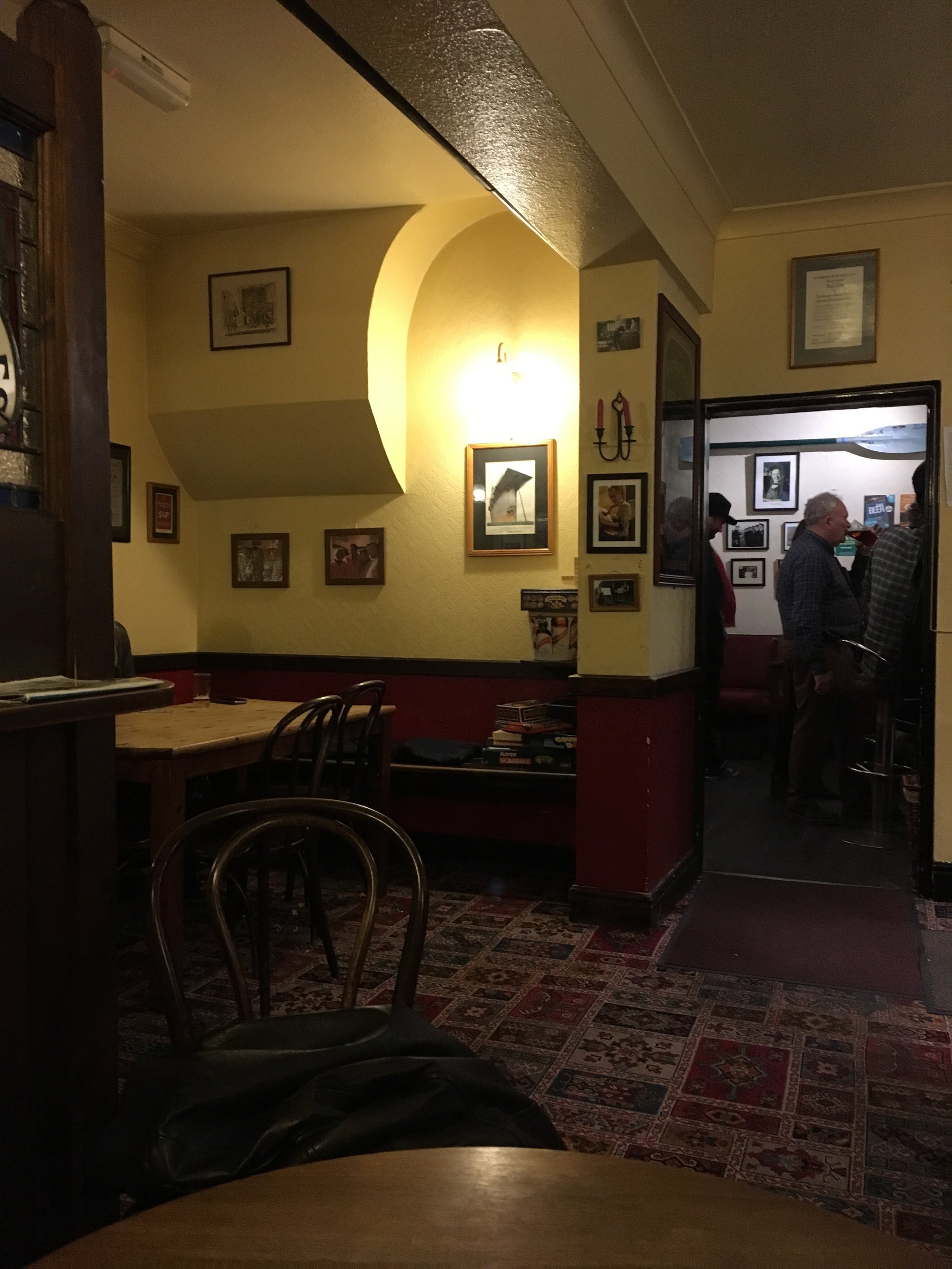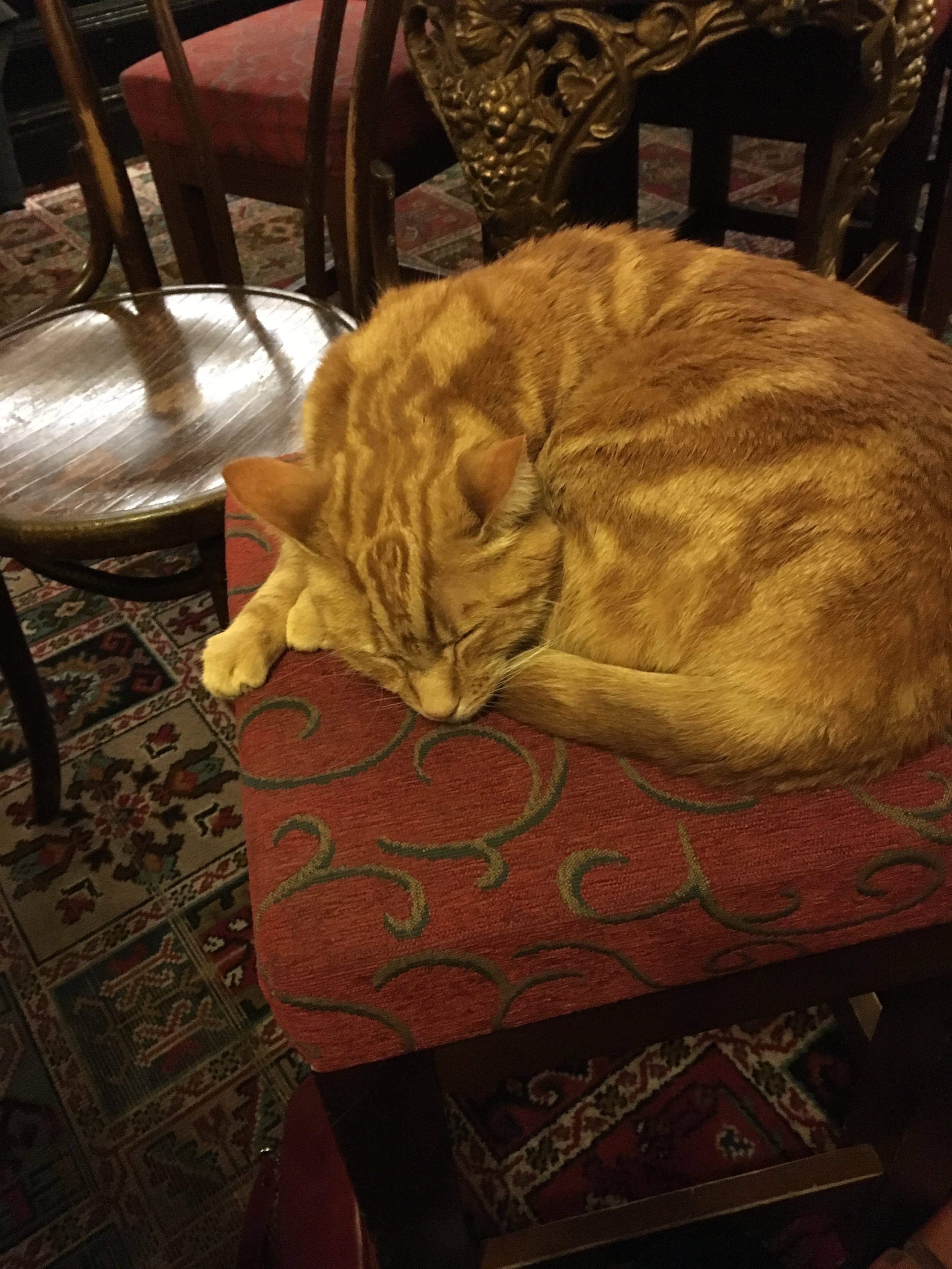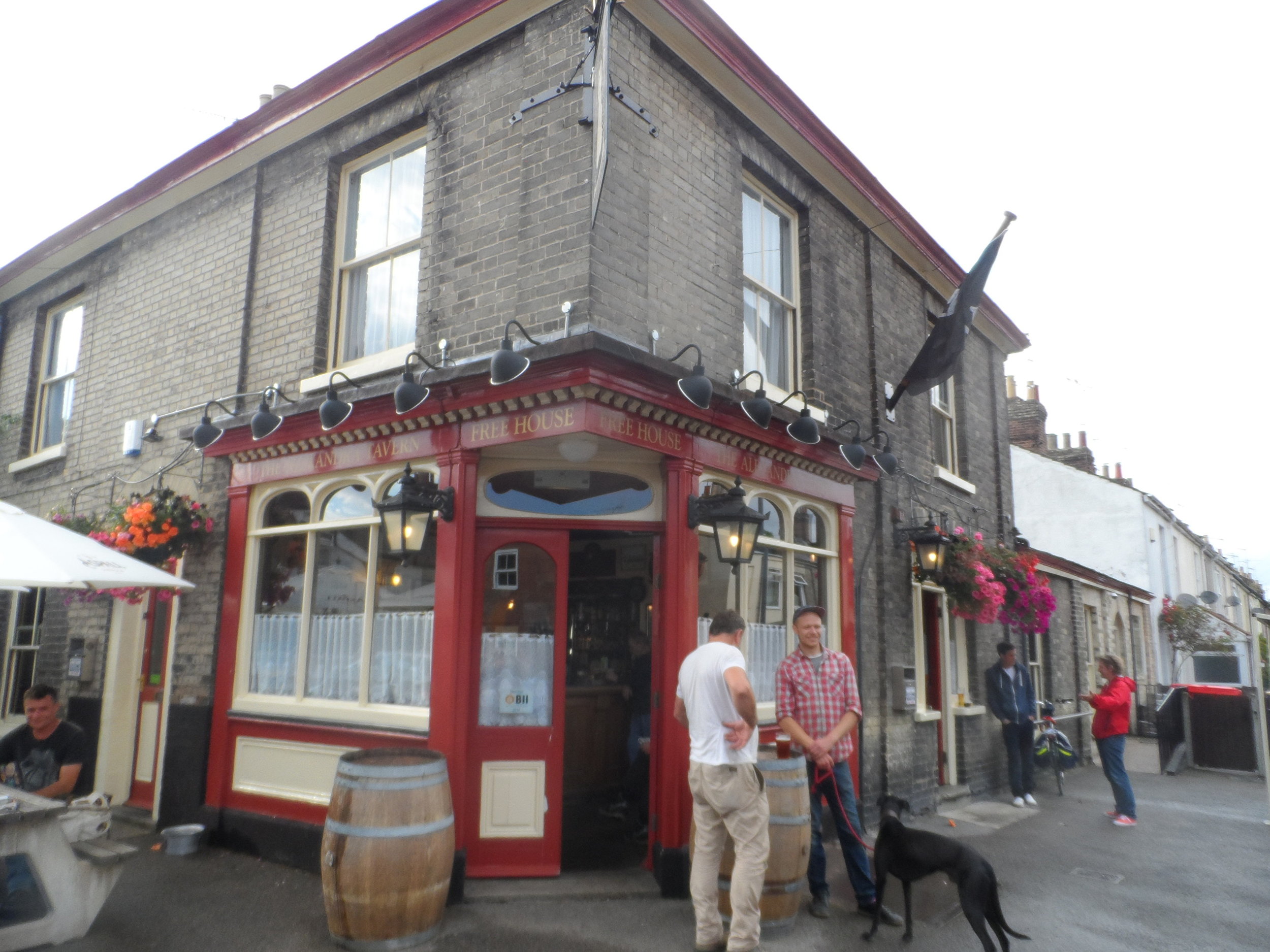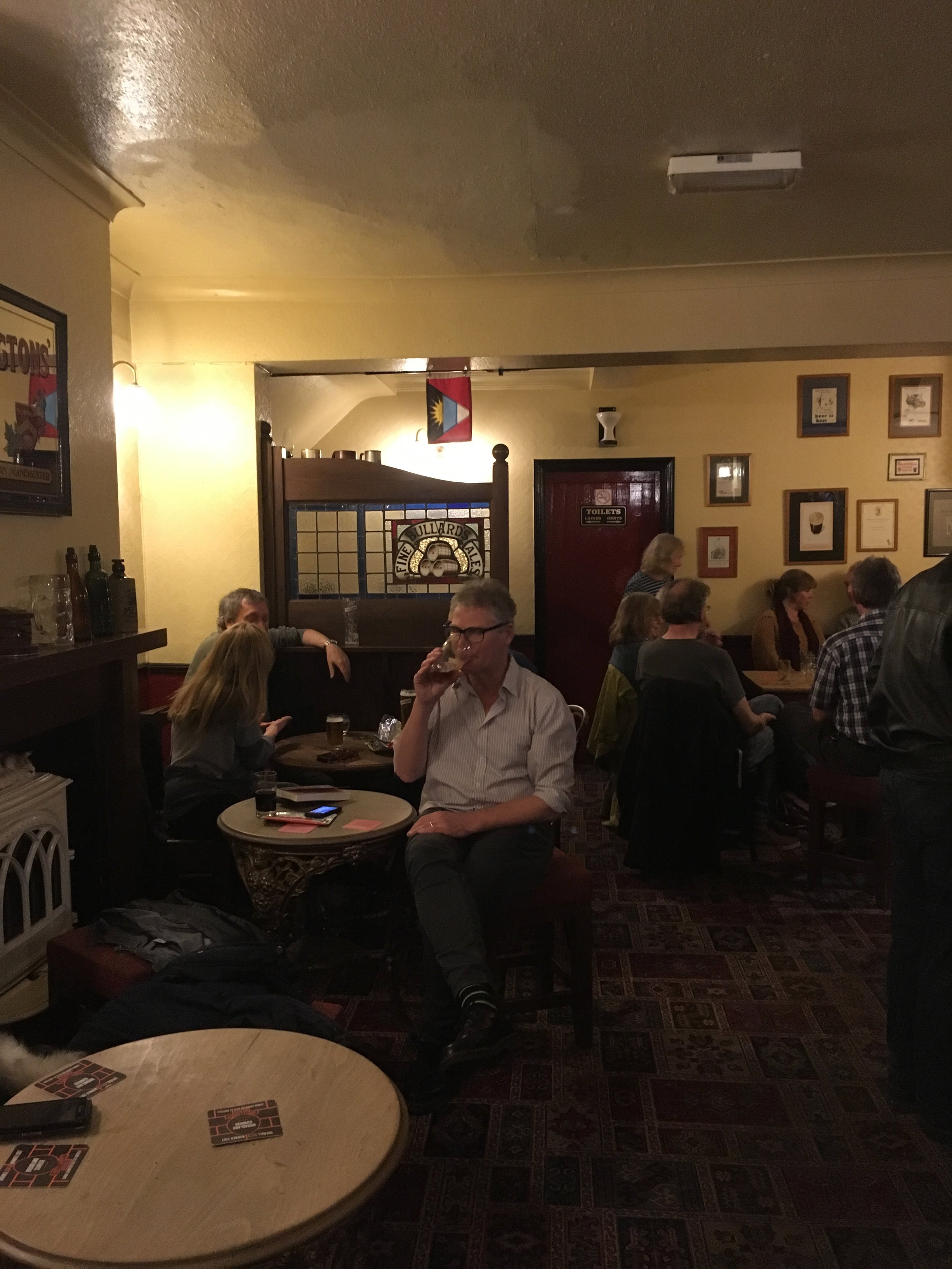And Meanwhile at the Alexandra Tavern...
An Extended Snack Attack Journey




First Among Third Places
In the warm golden light of the Alexandra Tavern, raggedy pub cat Tommy curled on a chair, and I warmed my chilled body against the grated wood fire in the front bar room. Two things were notably missing but not at all missed: TV screens and music. There were little clots of people talking and some couples playing board games in the back or darts in the lounge, a larger room with a worn carpet and comfy maroon velour banquets. The yellow plaster walls were decorated with, I learned later, memorabilia from publican owner James “Tiny” Little’s heroic 3,000- mile open water rowing voyage from England to English Harbour, Antigua in 2005. Some nights Tiny, thin and ropy with an earring in one ear, held court at the bar.
The Alex became our beloved “local,” during our five week Norwich sojourn, and it is an exemplar of “the third place” Ray Oldenberg wrote about in his book, The Great Good Place. If the first place is home and the second place is the workplace, then “third places” are anchors of community life. Welcoming, highly accessible, a social leveller, frequented by regulars, inexpensive or free: the Alex is all of this plus, extremely important to the British-born Chef, it is the main purveyor of Chalk Hill Brewery cask ales. To those not in the know, cask ales or “real ale,” as they are known in the UK, are unfiltered, unpasteurized beers that do all their fermenting in the cask with no artificial carbonation. The Chef ordered his pint of Chalk Hill Brewery’s Best Bitter, and I ordered a half of mild. * The talk and laughter washed over us, and we felt utterly at home.
Food with a Side of Philosophy
The Alex serves “Toasties”— grilled cheese sandwiches cut into triangles (£3.00)—and good, inexpensive one-dish dinners (£7.00) but oddly only until 7:00 PM. When we learned that the pub is famed for its monthly Philosophy Club evenings led by retired UEA professor Peter Green, we decided to come early and sample the food before the 7:30 event. After waiting an hour for our dinner, it became clear that one zaftig chef/waitress was doing all the work, but the Chef’s lamb and mint and my creamy chicken pesto stew, were well worth the wait, both served with giant heels of Ciabatta bread.
Middle-aged blokes, a few women and younger UEA students began gathering in the lounge for the night’s topic: “Utilitarianism,” the doctrine that actions are right if they are useful or benefit the majority. I was delighted and surprised by how articulate these folks were on arcane philosophical points. Professor Green was a witty—is there a Brit who isn’t witty?—affable, discussion leader who made no bones of telling one fellow he was being particularly annoying or just flat out wrong. The familiarity between the Philosophy Club attendees was both endearing and daunting, but the Chef got up the nerve to contribute. He said that we both took issue with Green’s notion that utilitarianism informs legislators’ decisions. After all, we had come directly from the Trumpocracy where decisions about healthcare and gun control are clearly not in the interest of the majority but of moneyed special interests. At the end of the evening, a short bespectacled man, who looked like a young Elton John, got up to read a rhyming poem he had written on the spot that encompassed the entire evening, even “our American cousins,” and rhymed “dump” with “Trump.”
It was a singular night, the only time we opened our mouths to converse at The Alex. Pubgoers don’t usually strike up conversations with strangers unless they happen to be sitting at the bar, I learned in Kate Fox’s Watching the English, which I kept sneaking off to the Norwich Main Library to read. By our final week in Norwich, I felt a keen yearning to be part of the convivial gatherings. But, alas we were only visitors, the American cousins whose absence would not be felt. As the Chef and I left The Alex for the last time, we looked wistfully through the windows at the lit rooms. This corner pub with rowing oars on the walls and a buffy cat nibbling dry kibble on a special ledge made just for him, would always be our “Third Place,”
**I’ve long thought that if bars in the US offered half-pints they would sell more beer, certainly to women, who, if you look around a British pub, are mainly drinking halfs.